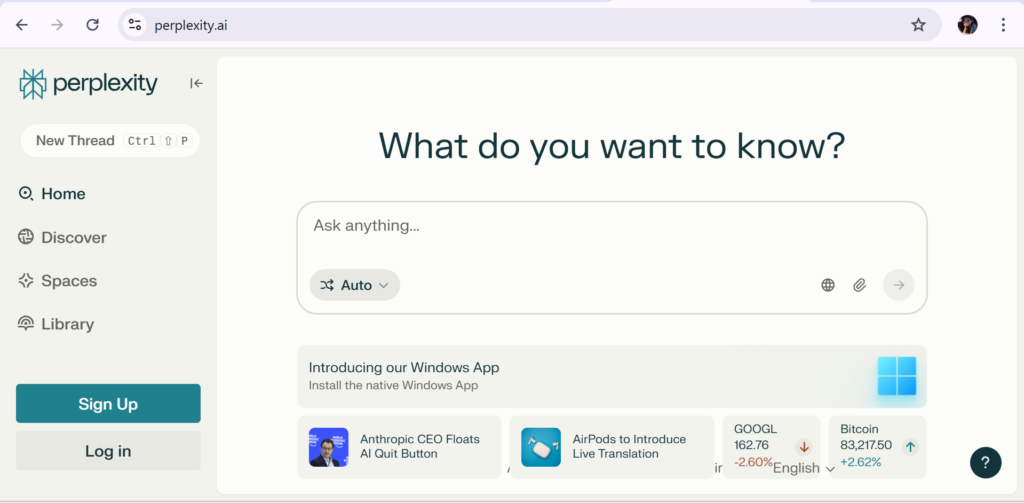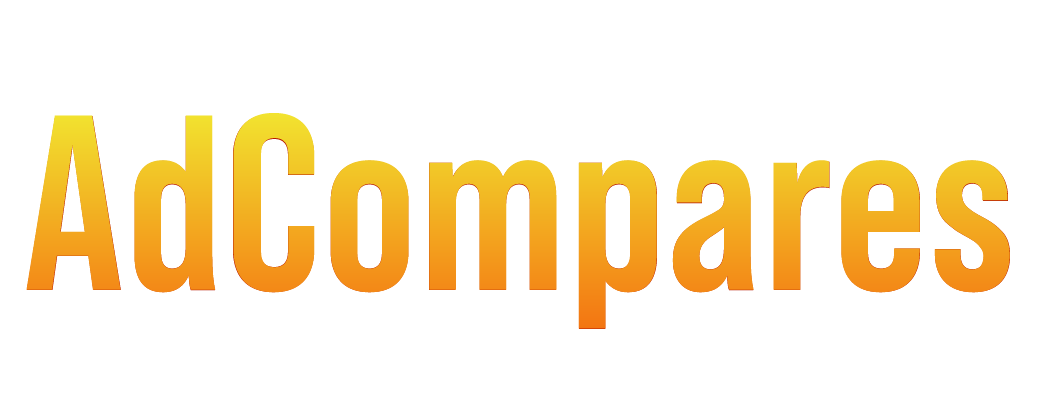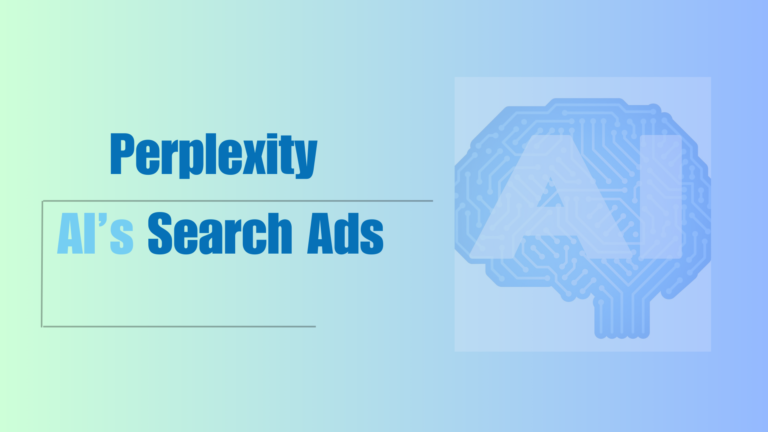A Disruptive Force in Search Advertising?
The world of search advertising is on the verge of a major shake-up. Google Ads and Microsoft Advertising have dominated digital marketing for years, but a new player has entered the ring—Perplexity AI.
With its upcoming AI-powered search ads, Perplexity AI is rethinking the way digital ads work by integrating them into AI-generated responses rather than displaying traditional search results. This innovation could fundamentally change how advertisers reach consumers.
But the real question is: Can Perplexity AI pose a serious challenge to Google and Microsoft, or is it just another fleeting experiment? Let’s explore.
What is Perplexity AI & Why Is It Gaining Attention?

Perplexity AI is an AI-powered search engine that uses machine learning and natural language processing (NLP) to generate direct, conversational answers to user queries.
Unlike Google and Bing, which return multiple website links, Perplexity AI provides a concise, research-backed response—similar to ChatGPT or Google’s AI-powered Search Generative Experience (SGE).
Why is this important?
- Instead of making users sift through multiple pages, Perplexity AI delivers instant, accurate answers.
- This reduces dependence on traditional search engines, which thrive on ad revenue.
- Its AI-powered results are gaining traction among researchers, students, and businesses.
Now, with AI-driven search ads launching in Q4 2025, Perplexity AI is entering the $600+ billion global digital ad market—and industry giants are watching closely.
How Will Perplexity’s Search Ads Work?
Perplexity AI is not just copying Google’s ad model—it’s reinventing it. Here’s how its AI-driven ads will differ from traditional search ads:
AI-Integrated Sponsored Results
- Instead of banner ads or multiple paid links, Perplexity AI will embed sponsored responses directly within AI-generated answers.
- These ads will feel less intrusive and more like organic recommendations, increasing engagement.
Smart Contextual Targeting
- Unlike Google’s keyword-based ad bidding, Perplexity AI analyzes user intent and only serves ads when highly relevant.
- AI understands the full query, making ad placements more accurate and useful.
Fewer But More Relevant Ads
- No more spammy ad overload—Perplexity will limit the number of sponsored placements.
- This could lead to higher engagement rates and better user experience.
Privacy-Focused Advertising
- Unlike Google, which relies heavily on user tracking & cookies, Perplexity AI will focus on ethical, privacy-friendly ads.
- This aligns with the growing demand for data privacy and could attract businesses wary of Google’s tracking policies.
How This Affects Google & Microsoft
Google and Microsoft have deep-rooted control over the advertising ecosystem, but Perplexity AI is attacking their weak spots.
Declining Dependence on Traditional Search Results
- Google and Microsoft rely on click-through rates (CTR) to generate ad revenue.
- But if users start getting answers directly from Perplexity AI, they may stop clicking on Google search ads altogether.
- This could reduce ad impressions and force Google Ads & Bing Ads to adjust their strategy.
AI-Driven Search is the Future
- Google’s Search Generative Experience (SGE) already shows how AI is transforming search.
- Microsoft Bing has integrated AI via OpenAI’s models.
- However, both companies still prioritize traditional search ad models, leaving space for Perplexity AI to innovate.
Advertisers Will Explore New Ad Platforms
- Google Ads continues to increase CPC (cost-per-click) prices, frustrating small businesses.
- Affiliate marketers and eCommerce brands are looking for alternative, lower-cost ad channels.
- If Perplexity AI can deliver high ROI with its AI-powered ads, ad dollars may shift away from Google & Microsoft.
Potential Challenges for Perplexity AI’s Ad Model
Although Perplexity AI’s search ad system looks promising, it’s not without risks:
Limited Market Share
- Google controls 91% of the search engine market—Perplexity AI is a niche player.
- Convincing advertisers to switch from Google Ads will take time.
Lack of Historical Advertising Data
- Google and Microsoft have decades of ad performance data, giving them a massive advantage in ad optimization.
- Perplexity AI will need strong machine learning models to deliver equally effective ad targeting.
AI Bias & Ad Placement Issues
- AI-driven advertising requires ethical considerations.
- If AI misinterprets queries or displays misleading ads, it could damage Perplexity’s reputation.
What This Means for Advertisers & Affiliates
For affiliate marketers, eCommerce businesses, and digital advertisers, Perplexity AI’s new ad system presents both opportunities & risks:
Opportunities:
- Lower competition than Google Ads.
- AI-driven targeting with higher engagement rates.
- Privacy-focused advertising for compliance-conscious brands.
Risks:
- Limited audience reach (for now).
- Uncertain ad performance due to lack of historical data.
- Possible AI misinterpretation of ad intent.
Key Takeaway: Advertisers should experiment early with Perplexity’s search ads to stay ahead of industry changes.
Final Verdict: Will Perplexity AI Disrupt Google Ads?
Perplexity AI’s entry into the search advertising space is more than just another tech experiment—it’s a wake-up call for the industry. By integrating AI-driven ads directly into search responses, it challenges the traditional pay-per-click (PPC) model dominated by Google and Microsoft.
Short-Term Reality:
Google and Microsoft still hold the lion’s share of the digital ad market, and Perplexity AI’s reach is relatively small. For now, advertisers may see it as an experimental platform, rather than a replacement for Google Ads or Bing Ads.
Long-Term Disruption:
If AI-powered search continues to evolve, Perplexity AI could rewrite the rules of digital advertising—offering higher engagement, better ad relevance, and a clutter-free experience. If it can scale successfully and prove its ROI to advertisers, Google and Microsoft will have to adapt or risk losing market share.
Should Advertisers Pay Attention?
Yes—and sooner rather than later. Perplexity AI represents a shift in how ads are delivered and consumed. Businesses that embrace AI-driven advertising early could gain an edge in a changing landscape, while those who wait may find themselves playing catch-up.
Google and Microsoft aren’t going anywhere, but one thing is certain: search advertising as we know it is about to change forever.
💬 Would you consider testing Perplexity AI’s ad platform? Drop your thoughts in the comments!


No Comments
Thank you for the sensible critique. Me & my neighbor were just preparing to do some research about this. We got a grab a book from our area library but I think I learned more clear from this post. I am very glad to see such excellent info being shared freely out there.
Your comment is awaiting moderation.